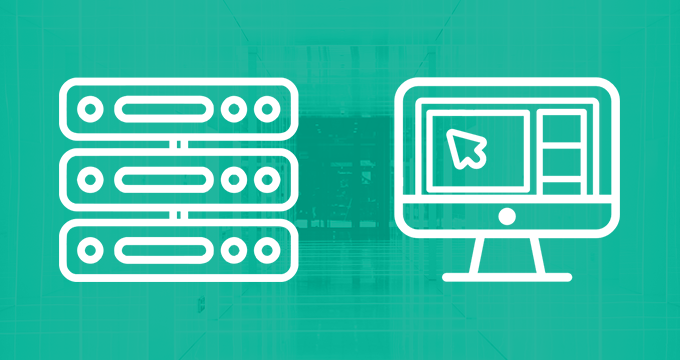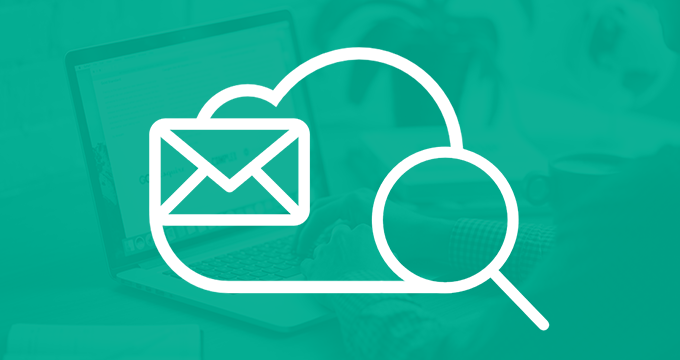Email archiving has been around for more than 20 years, and yet, many organizations still fail to make the most of the process.
If you think email archiving is “just retaining emails”, in reality, its benefits go way beyond that.
This article covers:
- Reasons why you should archive emails
- What is regulatory compliance
- Benefits of email archiving, including employee productivity, data storage, and preventing data corruption, and more
What Is Email Archiving?
Email archiving is a secure and compliant way of storing email messages and attachments for long-term retention. Once archived, these emails can easily be searched and retrieved when needed, even after long periods.
Such a central and easily accessible archive helps organizations meet regulatory requirements for data retention and reduce the strain on their primary email servers.
What does archiving an email do? It helps store emails that you don’t need immediate access to, but lets you find them when necessary.
Why Is Archiving Important?
Email archiving isn’t just a nice-to-have option for your organization. For many industries, it’s a mandatory practice, but even organizations that don’t require email archiving opt to include it in their operation.
There are many reasons why an organization would archive its emails.
1. Regulatory compliance
Regulatory compliance is the number one reason why every organization needs to archive their emails. With strict regulatory environments, archiving has huge demands, especially in the financial, healthcare, government, and K-12 sectors.
2. Ediscovery
Whenever a lawsuit is started, the court will require some kind of electronic records, most often email. With millions of them, it’s pretty hard to provide the exact conversations. It takes time, energy, and huge costs to run through all emails and most organizations fail to provide the requested information.
With an email archiving system, organizations can use advanced searches to easily comb through millions of emails in seconds and apply legal holds on those emails to prevent their deliberate deletion, alteration, and — destruction of evidence.
Ediscovery not only speeds up the process of providing communication records, but also saves millions of dollars for businesses. The document review process accounts for over 80% of litigation costs, or $42 billion annually, so being able to access archived emails quickly and efficiently makes all the difference.
3. Storage management
Many organizations believe that storing email on live servers or using the built-in archiving features of their email platforms can solve their email accumulation problems. In reality, many organizations experience double-digit growth in email storage needs each year, largely driven by increased attachment sizes.
This growth is largely attributed to email use and ever-growing attachment size. To combat this, many organizations impose email quotas to prevent infinite storage growth, but this leads to individual employees deleting emails to meet the quota.
When you store your emails in a separate email archive off your email server, you save space and don’t have to delete any emails, saving yourself from accidentally deleting important business records.
4. Policy management
Email archiving solutions help you to ensure that your emails are retained in accordance with legal and regulatory requirements. That’s why creating and managing email retention policies is a critical component of email archiving.
Email retention policies reflect email retention laws in your location and industry, and dictate how long emails need to be retained, which emails are considered sensitive or confidential, and appropriate procedures for email deletion.
Advanced email archiving software like Jatheon let you create multiple email retention policies and leave them to run automatically, taking all the worries and manual work out of your hands.
5. End-user monitoring and analysis
Although most messages your employees exchange are business-related, sometimes there’s more to it. Email archives help you define policies and set rules about what can be said in emails. If an employee uses a specific keyword in their emails, it can notify you about misconduct.
Advanced monitoring algorithms like these can help you identify behavioral patterns, detect early signs of misconduct, and prevent conflicts before they escalate. This is useful for HR teams because it allows them to detect workplace disputes.
6. Employee productivity
Locating a single elusive email amongst millions of emails is a nightmare for your employees, and, most of the time, that email search takes priority over other tasks.
Having a centralized email archiving system improves your employee productivity. This is especially true of your IT department, as they can search the whole archive with advanced filters, pinpoint the needed information in seconds, export it, and forward it. All of this in a few minutes instead of hours.
You can also automate tasks like email retention, deletion, and categorization — which lets your team focus on other things.
7. Information requests
Legislation such as FOIA, Sunshine Laws or FIPPA allow anyone to access any record that is held or controlled by an institution. These data records can be anything, including communications about procurement, employees, finances, and budgets.
As most of these communications take place through email, if you work for a government agency, school, or a hospital, information requests are a regular part of your job. This means that you need to be able to keep emails for a long time and presend them quickly when called for so as not to create a huge backlog.
Having an email archiving solution speeds up the whole process and helps you meet short state deadlines.
8. Prevention of data corruption
Keeping data on live email storage services is alright if you don’t have many emails and don’t intend to keep them for a long time. However, as emails keep piling up and years keep passing, the risk of data corruption just keeps rising — especially if backups are outdated or infrastructure is unreliable.
Data corruption is a reality, no matter how diligently you store your electronic information. However, one of the major benefits of email archiving is the long-term storage of data with no corruption or errors.
9. Cost-effectiveness
An email archiving solution initially might be considered an unnecessary cost, but think about how much money you are saving in the long run.
- Non-compliance fines are huge and continue to increase
- Ediscovery cases take up your resources and have high costs
- Open data requests often require dedicated employees
- Data loss or corruption can cost you your whole business
- High costs of paying for an increase in live server storage
And all of these costs amount to millions, which can be reduced dramatically with an email archiving solution.
10. Customizable access to information
Having a large number of employees and a hierarchy in your organization means that not everyone can have the same access to crucial information. This is very hard to manage without a dedicated solution for your email administration.
An email archiving solution comes with customizable user roles and permissions. This means that you can organize email access the way you deem best — by creating custom roles or limiting access to end users.
Regular employees will benefit from being able to freely delete email from their mailboxes, knowing that there is a perfectly organized and easily searchable repository that they can rely on while you can rest assured that crucial information is only available to select employees.
11. Unified repository
When your emails and messages are scattered across different channels and servers, it gets difficult to manage them, search for important information, and keep track of what is being communicated.
With an email archive, your whole organization’s communication records which are distributed across various devices can be centralized in one place.
Having a centralized “information vault” gains even more importance when we think about all the alternative channels that today’s organizations use for business communication — internal chat and record-keeping systems, WhatsApp, Social media, Zoom, iMessages, phone calls, to name a few.
All these channels contain business records and, as such, need to be retained. Modern archiving software can archive these new data types alongside email and allow integrative search through everything at once.
12. Data verification
Since email can be used as evidence, it’s vital that your organization can prove that the emails have been archived in their original state and remained intact while in the archive.
When talking about ediscovery, the time and date stamp within metadata is the most vital information for the court. These authenticity and message integrity verification features help prove that a specific email has not been manipulated or faked, minimize legal risk, and can also assist with internal investigations.
Email archiving software automatically stores emails in real time, as they are. This ensures the original date and all other metadata of the email are correct.
13. Disaster recovery
If your network fails, you’ll be in a position where you must restore your database. This is why most companies want to add a second layer of data protection and security.
Email archive setups aren’t the same as ordinary backups since they allow organizations to have uninterrupted access to information and maintain business continuity in case of a disaster.
They provide you with a backup of all of your communications with the ability to restore them quickly. It’s like having two separate locations for your data, which can be invaluable during outages.
14. Upgrades and migrations
Email archiving simplifies future server upgrades and migrations, including moving to the cloud.
Since archived emails are stored separately from your live email environment, your active email database is smaller and easier to manage. This reduces migration time, lowers the risk of data corruption, and enhances security.
Whether you’re upgrading on-prem infrastructure or transitioning to a cloud-based email system, having a dedicated archive ensures that historical data remains intact, searchable, and unaffected during the migration process.
15. Improved network performance
If you keep all of your emails on a server, you might have noticed that the performance is affected when searching, downloading, forwarding, or sending emails. True, having too much data on your server will clog up your communication channels.
The problem gets worse with each new employee who joins your company, as you can’t just delete their data once they leave. Storing old emails in an archive will reduce the load on your primary server.
16. Corporate knowledge management
Even if your organization isn’t in a regulated industry, email archiving can still offer significant value as a central hub for corporate knowledge. It captures valuable insights, like how quickly your teams respond, patterns in communication, and who your top contributors are.
But the benefits go beyond analytics. Email archiving helps you manage data proactively, protecting everything from customer interactions and internal conversations to critical contacts and task histories.
When your data is secure and well-managed, it’s easier for everyone to access, helping you preserve both your operational efficiency and your organization’s long-term reputation.
17. Easy integrations
Email archiving solutions typically integrate with all major email platforms. Some contain features like the Outlook plugin, which lets users access the archive directly from Outlook, saving time and allowing them to use a familiar interface.
Most of these solutions provide zero friction and can usually integrate with other communication channels your organization is using.
18. Audit trail
Having an email archive means that admins and compliance managers can do audits. Authorized staff members can see audit trails through a historical view of the activities of specific users within a specific period.
If an employee tries to access the information they’re not authorized to access or log in from an unfamiliar device, this activity will be recorded in the audit trail. Admins can also check what specific keywords were searched, which users looked for what data, if they attempted to modify certain retention rules, or if somebody tried to overstep their authority.
Where to Start with Email Archiving?
You can follow these guidelines to get started with email archiving:
- Assess your needs — Understand why you need an email archiving solution. Is it for compliance, data management, ediscovery, or a combination of different needs? Take a look at the list above to understand what an email archive can do for your organization.
- Review regulations and federal laws — Research regulations in your industry and make sure you understand the laws that apply to you, especially how long you need to retain emails.
- Choose a solution — Explore email archiving solutions and compare their features, pros, cons, pricing, and how they fit your needs.
- Migrate data — Once your email archiving solution is set up, you will need to transfer all of your emails into its database for safekeeping.
- Create email retention policies — Establish a clear email retention policy your whole organization will follow. Automate the task to your solution and define different retention dates depending on circumstances.
- Train your team — Make sure that your legal, HR, IT, and compliance employees, as well as stakeholders, understand how to use the archive and its rules. Make sure to set up roles and responsibilities for your core archiving team.
- Inform your employees — With a new policy on email retention, the whole organization needs to understand what archiving means for them and how to use it.
- Review and improve — Email archiving is not a one-time task. Regularly review and improve your archiving strategy to meet evolving regulatory requirements and organizational needs.
By following these steps, you can streamline the implementation of email archiving in your organization, ensuring compliance, effective data management, and a smoother overall workflow for your team.
FAQ
How long do emails stay in an archive?
This depends on the company’s email retention policy, which is defined based on the industry, organizational policies, and compliance laws that control email retention. Most email archiving solutions come with the ability to retain emails permanently or let administrators and compliance officers set retention rules. After a retention policy expires, emails are automatically deleted.
What is the best way to archive old emails?
It’s best to use email archiving software to automate the process of capturing, searching, and storing email. The choice of the best archiving method depends on your exact needs, the existing IT infrastructure, company size, and legal requirements.
What happens when you archive an email?
When an email is archived, it is moved from your active mailbox or folder and stored in another location for long-term retention and future reference. For organizations, this means that all the employee emails get moved to a centralized email archive system, where administrators and compliance officers can view and manage them.
Do archived emails get deleted?
No, the emails you archive aren’t deleted. They are simply moved from your active mailbox to another location. The archiving system will automatically delete them after a retention policy expires.
Can employees delete archived emails?
No, end users won’t be able to delete anything because archived emails need to stay in the system as long as they are under an active email retention policy, which is controlled by your company.
Does archiving emails save space?
Yes, archiving can help save space in email servers and client applications. When you archive emails, you typically move them from the active mailbox or folder to a separate storage location, such as an archive server or an email archiving tool. This process reduces the size of the active mailbox, freeing up storage space and improving the performance of the email system.
Should I archive or delete emails?
Archiving is safer and supports compliance, while deletion can risk data loss or legal issues. Don’t leave it to employees to decide. Set clear retention policies and automate archiving to ensure consistent, defensible records management.
Read Next:What Is Data Archiving? Definition, Benefits, and Best Practices Best Cloud Compliance Tools for 2025: Features, Benefits, and How to Choose |











